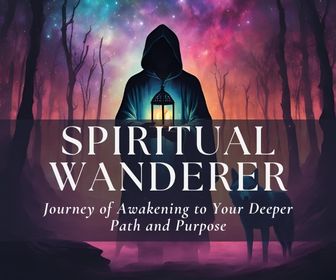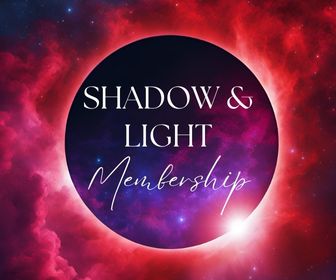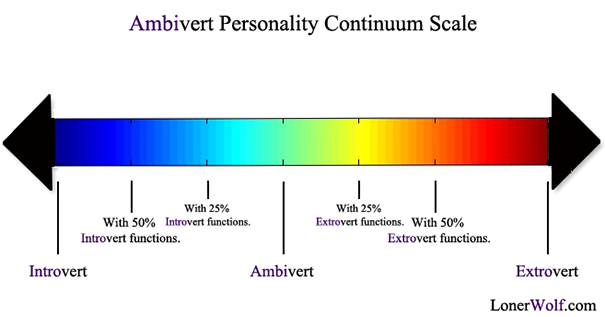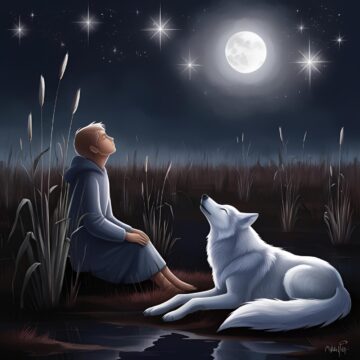There is no such thing as a pure introvert or extrovert. Such a person would be in the lunatic asylum. ~ Carl G Jung
It was when he started saying things like “you must be an INTJ” and “thinkers are more objective than feelers” that I became more interested in staring outside the window than listening to this guy – a psychology student. Personality types are fascinating to talk about, but depending on who’s doing the talking, it can get a bit too stiff for me.
Often I’ve wondered why I’m less than enthusiastic about my personality type, or types. There are as many personality tests based on Introversion and Extroversion as there are types: Jung’s Typology, Big 5, Myers Briggs, Socionics, Enneagram. Sometimes I’m an introvert, others I’m extroverted, sometimes a feeler and others a thinker. For many, personality types provide a lucid way of understanding what were felt to be the abstract traits of ones character. Finally we can share on our Facebook and twitter pages that we’re “INFJ’s!”, “ISTP’s!!”, “ISFJ’s!!!” We seem to believe that our entire emotional and mental functions as a human being perfectly correlate with this well thought out, 4 letter description of who we are. Introspection and self-analysis just became a whole lot easier – just 70 questions away to discover who you really are.
But amidst all the introvert and extrovert extremist polarity hype there exists one forgotten type. The Ambivert. I had once remotely read of the term Ambivert while perusing through Young’s “Source Book for Social Psychology“. I’ve scoured the internet extensively and found very little on the subject. It seems this ambiguous, complicated, mythical creature is nowhere to be found.

Spiritual Wanderer Course:
⭐️⭐️⭐️⭐️⭐ "I started the Spiritual Wanderers Course a short while ago and for the first time in twelve years I have started to experience love, acceptance and compassion for myself and within myself. Thank you so much." – Vivienne S.
Continuum Personality Scale
Introversion and extroversion are typically viewed as a single continuum. In other words: to be high in one, it is necessary to be low in the other. Jung and Briggs proposed that everyone has both an extroverted side and an introverted side, one having more predominance than the other. However, Isabel Briggs Myers only strictly allowed the classification of these two types, even though she based her work on Jung’s theory. Jung was of the idea that there was a third “middle” group. The Ambivert.
“There is, finally, a third group… the most numerous and includes the less differentiated normal man… He constitutes the extensive middle group… I call the first group extraverted and the second group introverted.” (p516, Psychological Types)
This would allow for the possibility that the majority of the population are in fact Ambiverts. Ambiverts seem like a grey area in the personality-type world. Inconveniently, paying attention to the Ambivert would present a difficult and unnecessary complication – that is, that the entire population couldn’t be squeezed into one of two boxes. Tests can never be accurate because the psyche doesn’t work in percentages. In fact, the introvert and extrovert notion was never intended to be a testable dichotomy. The concept of the Introvert and Extrovert was originally intended to determine whether a function is introverted or extroverted – not a person. However, the MBTI asserts otherwise (take our free personality test based on it here.)
Fifty Shades of Ambivert
Isn’t is more likely that our personalities are varying mixtures of introverted and extroverted functions instead of say, all functions being introverted or extroverted?
I believe that people are simply more dynamically complex than the way we polarize ourselves. The most shameless of party-goers has his insecurities, and the quietest at work can be the wildest at night. Put simply, when we’re in a comfortable environment, we’re more likely to be ourselves.
The majority of us have traits of both personalities which are contextually driven. In other words, the majority of our behavior is a result of our interactions with a situation.
If an “extrovert” has to present an assignment, he may become an introvert for the day by blocking out exterior stimulation and getting lost in a world of thought. Jung defined introversion as an “attitude-type characterised by orientation in life through subjective psychic contents” (or focus on one’s inner psychic activity). Extroversion on the other hand was defined as “an attitude type characterised by concentration of interest on the external object” (or the outside world).

Shadow & Light Membership:
⭐️⭐️⭐️⭐️⭐ "Straight from the very first weekly email, this has been mind-blowingly powerful, the synchronicity and the on-vibe contents resonate uncannily with my soul’s current challenges." – Marie
This means that just because you are considered an “introvert” does not mean you’re highly introspective and posses much self-knowledge. Most likely, it’s simply your “Extroverted” brain function that becomes over stimulated easily, causing you to avoid socializing. Meanwhile, you’re still getting lost in a world outside of your ‘self’, just like an extrovert does, by reading a fantasy book, or getting lost in a video game (an extrovert thought function). You may have a big imagination, but the function of your brain that finds ‘fun’ in storylines is the same as the extroverts who find ‘fun’ in experiences. Neither is left in solitude with the introverted function of self-analysis and introspection (introvert thought function). Simply put, you can have an extroverted mind while still functioning as an introvert.
However, there are those rare true unwavering personality types who possess almost all dominant extrovert functions and no introverted functions regardless of the situation. Even presenting an assignment would involve yapping away with others. Or for instance, the predominantly introverted functioners who find no sense of fun in celebrating birthdays or anything even with their closest loved ones, and would rather read a book instead.
The Freedom Of Being an Ambivert
From my understanding, Jung would say that we all have “preferences” of what we would like to do, but we also have the capacity to be able to be both introverted and extroverted. And as we get older, we slowly migrate towards the center of the continuum scale in most of our functions, as part of the self-actualization process. The majority of people, although slanted towards one side of the scale, operate using traits and preferences from both sides.
Ambiverts are people who don’t really prefer one way of functioning over another. In other words, you could say they’re the neutral, middle-ground hippies. They’re equally comfortable in situations where the introvert feels most at home and situations where the extrovert is having a good time. That being said, I would consider myself an Ambivert. I don’t feel drained from social interaction or going out shopping, and discussion energizes and invigorates me. I constantly seek daredevil risk-taking stimulation, while simultaneously relishing quiet time with my books and catching up on scientific essays. I’m both overly confident, but also reclusive and critical in thought.
The freedom with Ambiversion comes in finding both Introverted and Extroverted worlds satisfying and rewarding. Ambiversion helps you to enjoy a varied life. Ambiverts have enough introversion to slowly absorb the world around them and enough extroversion to be able to propound ideas and express themselves (through writing of verbally) without feeling depleted.
The notion of Ambiversion changed my life. Previously, when filling in a personality type questionnaire, I”d hesitate when answering questions like: “would you prefer to go to a party or read a book?” My first thought was “Depends on the party or book and also how tired I am from the previous night.” But that contextual option wasn’t available. Now I realize what a gift it is to be sensible, reasonable and well balanced enough to have the freedom of choice.
I don’t consider myself either extroverted or introverted. Even though I may be 49% extrovert and 51% introvert, I’m equally labeled an INTJ. Yet other’s with 99% introvert and 1% extrovert are still labelled INTJ’s. Superficially we have the same label, but psychologically we are entirely different. This is why I much prefer the Big 5 Personality traits, and their more balanced way of analyzing our personalities.
I’m an Ambivert with 70 shades of Introvert and 30 shades of Extrovert! What are you?
Did you know: You can take our Introvert, Ambivert or Extrovert Test?
Three paths to inner transformation – here’s how I can help you go deeper:
1. The Spiritual Wanderer Course: Are you feeling lost, adrift, and unsure of your life's purpose? Gain clarity, focus, and direction on your inner path by uncovering the five archetypes of awakening within you. Learn how to navigate the highs and lows of your inner journey and chart your unique path with 3+ hours of audio-visual content, workbooks, meditations, and a premium test.
2. Shadow & Light Membership: Do you crave consistent support on your spiritual quest? Receive weekly intuitive guidance and learn to embrace your whole self, including your shadow side. Cultivate deeper self-love with our affordable, personalized support.
3. Spiritual Awakening Bundle: Ready to embark on a profound soul-searching adventure? Dive into our collection of essential transformative resources! Explore five illuminating eBooks and seven in-depth journals, plus unlock two special bonuses to empower your spiritual growth.








I’m definately an amnivert. Even the tests place me smack in the middle. I love conversation and thrive on it, but I don’t seek it out. I’m happy being alone and need that too. Being around my noisy kids brings out my need for introversion, but I my extrovert needs comes out when I have trouble making decisions without consulting another human.
I had to block two crappy pop ups from this site before reading the article. So rather than read the article, I looked for the comments section to write this.
You are doing the Internet all wrong Mateo.
Thank you for your feedback Smack.
We’ll revisit how to monetize our website in the future but for now, this system seems to be working well in not only driving traffic to our website but establishing a strong community.
Great article, I found it by looking up ‘ambivert’ when encountering it in a Citrix PDF advising how to handle different personality types when delivering a presentation, so thanks for helping make this fascinating term a little easier to learn about on the internet! :)
I wonder if there is a particular personality type that makes it especially difficult to complete a personality type test? Every time I attempt one I find I identify with too many of the available options, and I rarely choose one without doubting my selection. I seem to swing between being overly indecisive about inconsequential things, while being irrationally impulsive about the more important things!
Last time I took a test I came out ENFP but I’m very pleased to hear that I needn’t conform to those 4 letters in every aspect of my personality, and that they may simply correlate to trends rather than firmly entrenched types…
Hey Andrew,
Thank you for the kind words. I think it would be interesting seeing your results for the Big 5 Test which is much less ‘binary’ in boxing you up into one of two groups. It might suit your personality a bit more: https://lonerwolf.com/big-5-personality-traits/
Hey thanks man, I did take it when I found it yesterday, and got between 63% and 83% on all properties. I got the impression that four of those are probably better (or at least I would consider them better) the higher they are, with the exception of neuroticism, which is probably better the lower it is.
But that might just be the neurotic in me, and appreciating high scores in the other values might just correlate with having those scores in the first place also! I definitely struggle to be objective, I am clearly at least 1/3 introverted and I do try to be introspective ( I have a long commute several times a month and it gives me time to think), but I am not always blessed with clarity of sight when examining myself.
I think my single biggest barrier to greater self-awareness and self actualisation is being present, which is why for Lent this year I have given up late nights, and committed to being in bed before midnight. Lack of sleep is something I feel has taken me away from being an active participant in my own life, I’ve struggled with it since I was a child.
That’s a good decision Andrew. The moment I stopped drinking coffee and getting longer sleep, I noticed an immense increase in energy that allowed me to focus on higher focus and mindfulness in my daily life.
There’s many exercises that can aid in this task also, but maybe for future articles, as this medium is to small to write them in detail.
Why does you big 5 test link redirect to the enneagram test?
From personality tests I’ve taken: I’m an INFJ ambivert, though my introvert qualities may be more obvious. My results from the Big 5 Personality Traits Test: Agreeableness 66.67%, Conscientiousness 86.67%, Extraversion 56.67%, Neuroticism 56.67%, and Openness 80%.
That’s a great way to present a more whole personality type; to state our MBTI’s alongside our Big 5.
INTJ, A53%,C84%,E62%,N35%,O89%.
i feel the same way about myself when taking personality test. For me what i wanna do and feel is situational and i like having a balance in all realms
Well said, Emmanuel. Personality tests are useful in the process of beginning to explore ourselves but ultimately part of our journey of self-growth is to shed all ‘labels’ and ‘boxes’ we’ve put ourselves in and experience the true freedom of a ‘fluid personality’.
I get four different types in the personality test, infp and enfp more commonly but sometimes intp and entp. To be honest I don’t like the polarisation, for example it says that I don’t like logical thinking or public speaking, when these are among my favourite things, so what if i prefer reading to partying it doesn’t make me shy. I think that maybe the personality tests are due an update for a more of a scale than polarised boxes that people are pushed into. It seems like the whole world is in a rush to label themselves, even I was. Now I realise we over simplify our personalities to suit stereotypes, personality types were explored to be liberating for us, but now it seems we use them to confine ourselves.
I feel like dropping all labels, I no longer see their relevance. I am who I am even though Id love to know more about myself my strengths and weaknesses, I just feel like such confined labels will never actually show me them. I guess I’ll just have to explore for myself. I wish more people saw this though it’s painful to watch people confine themselves to what they believe they should be, or judge others by their self labels.
That’s a very wise decision Leah. Labels are our self-created prisons in self-growth.
Though that being said, they are also necessary as sign posts to communicate information or attract your attention toward an interesting idea.
A man points to the moon, but most people will be too busy falling in love with the finger than absorbing the beauty of the full moon. There will always be those rare few who eventually end up looking up.
I could relate myself to you Leah. I took different personality test, but the result is not satisfying. I was ENFP, then become ENTP, then INTJ, then ISFP, then INTP, then INFJ, then ENTJ. I’m tired, really. And then i took a test in TRUITY, something like that. A personality test with a lot of questions. And my findings says that “I may be extraverted and introverted, feeler or thinker, judger or perciever” but I’m Intuitive in the result.
i always get estp-a or istp-a and i don’t see why not just make an astp-a and ambivert equivalents for all the personality types?
That’s exactly the limitations of MBTI, you can never be in-between any of the spectrums.
I once took an online Meyers-Briggs test that said X instead of E or I whenever you scored 50% on one of those, so I got XSTP.
I am an INFJ, and so a more extroverted introvert, or an ambivert. I could tell you were an INTJ immediately in this article, lol. INTJs are notorious for being skeptical of categorization – you hate being pigeon-holed. Personally, after dating lots of INTJs, I think you just don’t like being “known”. In any case, I agree that INTJs are typically more ambivert.
Hola Robin,
Although I may be thought dominant, the MBTI typing approach is limited in that it removes entirely the other polar opposite from your personality. Being ‘boxed’ as a ‘T’ doesn’t allow a full description that I might be only 59% thinker, and 41 feeler.
Thinkers perhaps are more capable of seeing this short-sightedness presented in these tests which is why they refuse to be classified in a black or white categorization.
I appreciate the value of personality tests which is why I’d recommend the Big 5 much more than I would the MBTI. The popularity of the MBTI’s comes from everyone’s innate desire to identify themselves with a label which you can’t do in the Big 5.
Finally a word that describes me as a balance person, thank you for this article very eye opened
Great! I tend to be a more fluctuating ambivert than a stable one. For instance, some days I’m hardcore extrovert, others I’m completely happy staying home with Netflix. Others I’m equal. I’ve taken the test here and usually score 54-59, but I’ve gotten as low as 47 and as high as 67 (I really enjoy that test, I find it interesting to take in different moods). :)
Hola Abigail,
I think that’s the key to living in balance and inner harmony; listening to yourself without any preconceived ideas of who you are. I’ve sometimes found many Introverts for example refuse to do ‘extroverted’ activities because they say that introverts don’t do.
Often who we think we are can limit what we can and can’t do; there’s no absolute static people yet our minds trick us into thinking we are white or black.
Great comment!